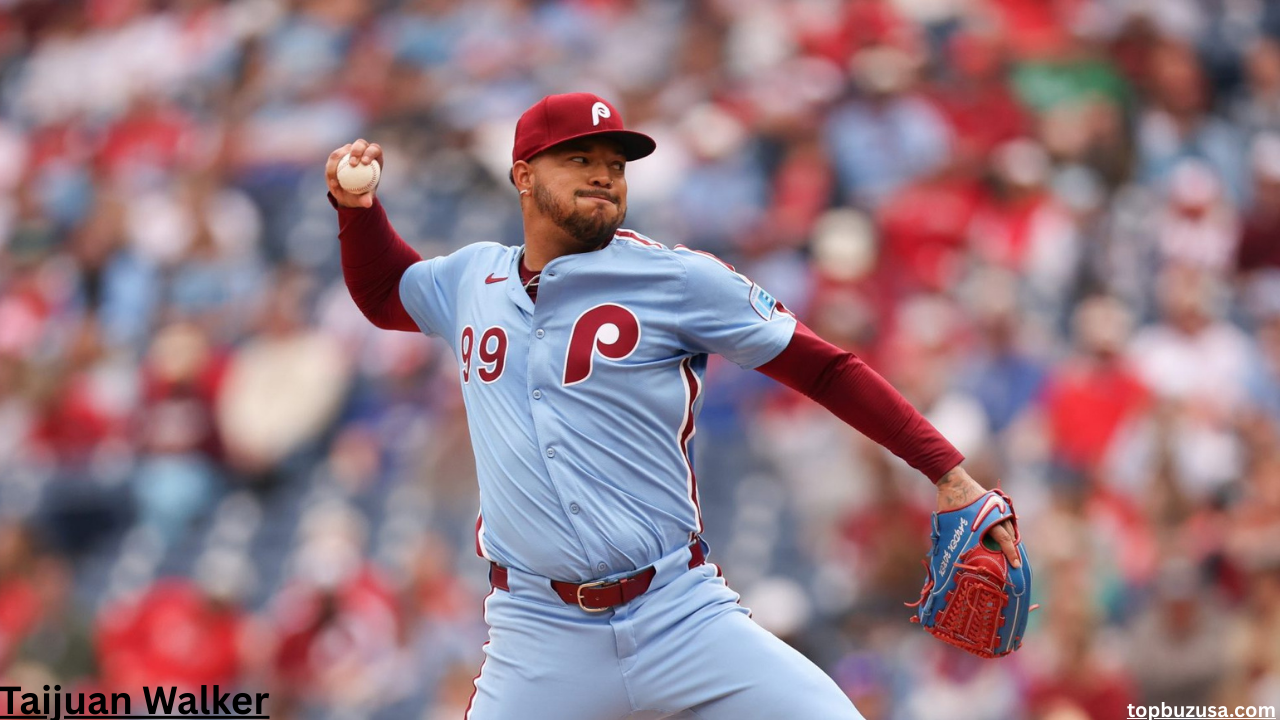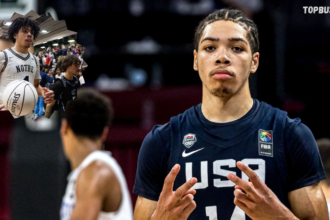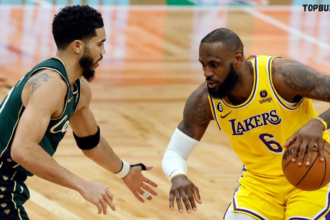Taijuan Walker is more than just a name in Major League Baseball (MLB) — he’s a symbol of grit, perseverance, and resilience. Over the years, Walker has evolved from a promising high school athlete into a veteran right-handed pitcher known for his dynamic pitch arsenal and undying work ethic. While his career has been a rollercoaster marked by injuries and comebacks, his ability to bounce back and remain a competitive force on the mound is what sets him apart in the fast-paced world of professional sports.
Currently pitching for the Philadelphia Phillies, Walker has established himself as a reliable starter, capable of delivering quality innings and stabilizing rotations. His unique journey — shaped by multiple team changes, major surgeries, and relentless self-improvement — offers inspiration to both aspiring athletes and fans alike. In an era where performance often overshadows personal growth, Walker represents the rare blend of talent, humility, and determination.
This article delves into the multifaceted story of Taijuan Walker: his humble beginnings, professional rise, technical evolution, and the impact he continues to make in and out of baseball. Through comprehensive insights, we aim to capture the essence of his career and the legacy he is building, one pitch at a time.
Early Life and Background
Childhood and Family
Taijuan Emmanuel Walker was born on August 13, 1992, in Shreveport, Louisiana, but grew up in Yucaipa, California. Raised by his mother, Walker experienced a modest upbringing, which often involved financial hardships. His biracial heritage — African-American and Mexican-American — contributed to a rich cultural identity that shaped his values and outlook on life. His mother, a pillar of strength, worked tirelessly to support her family, instilling discipline and ambition in her children. Taijuan credits her as a key influence in his early development both on and off the field.
Walker’s childhood was marked by a deep love for sports, but it was clear early on that he possessed athletic gifts that extended beyond the norm. Whether it was running, jumping, or throwing, his natural coordination and strength made him stand out in youth leagues. Yet, despite his physical talents, Walker was known for his quiet, humble demeanor — a trait that continues to define his personality today.
Athletic Roots
In high school, Walker excelled in both baseball and basketball, making it a difficult decision to choose between the two. Standing tall at over six feet, he was a dominant force on the court and an electrifying presence on the pitcher’s mound. His performances quickly caught the attention of scouts and coaches nationwide. Ultimately, his passion for baseball — combined with encouragement from mentors and the opportunity to turn professional — led him to commit fully to the sport.
In 2010, his dream materialized when the Seattle Mariners selected him in the first round (43rd overall) of the MLB Draft. Signing with the Mariners marked a pivotal moment in his life — not only did it validate his talent, but it also allowed him to provide for his family, something he had always aspired to do.
Professional Career Timeline
Seattle Mariners (Debut and Development)
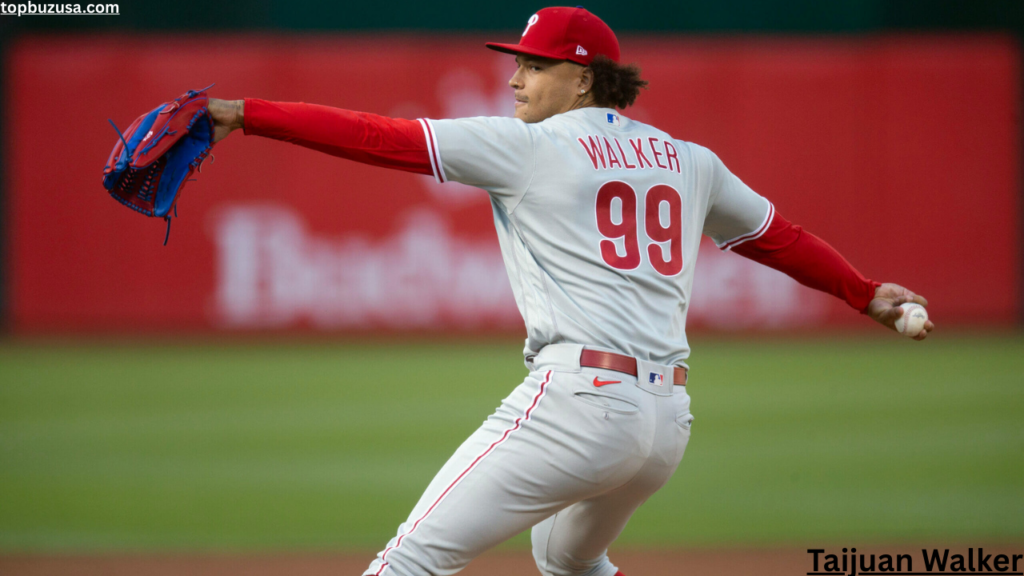
Walker made his MLB debut with the Seattle Mariners in 2013. At just 21, he was touted as one of the most promising pitching prospects in the league. Early on, he showcased a fastball that could touch the upper 90s and a developing curveball that hinted at future dominance. His performances, though inconsistent at times, showed flashes of brilliance. However, as with many young pitchers, he struggled with control issues and injuries that stalled his momentum.
Despite the setbacks, the Mariners stuck with Walker, giving him multiple opportunities to prove himself. By 2015 and 2016, he was a regular fixture in the rotation, showing improvement in command and maturity on the mound. Still, inconsistency and questions about his durability led to a blockbuster trade that sent him to the Arizona Diamondbacks in 2016.
Arizona Diamondbacks Era
In Arizona, Walker seemed to be finding his rhythm. He posted a 9–9 record with a 3.49 ERA in 2017, and many believed he was entering his prime. However, disaster struck in 2018 when he tore his ulnar collateral ligament, requiring Tommy John surgery. The recovery was grueling and sidelined him for over a year, throwing his future into uncertainty.
Despite the injury, Walker maintained a positive outlook, dedicating himself to rehabilitation and refining his mechanics. Though his time with Arizona was short-lived due to continued health concerns, the lessons he learned during this period — about perseverance, self-discipline, and mental toughness — would serve him well in the years to come.
Return and Redemption: Toronto Blue Jays & Mariners (Second Stint)
After recovering from surgery, Walker made a brief return to the Mariners in 2020 before being traded midseason to the Toronto Blue Jays. Despite limited innings due to the shortened COVID-affected season, he impressed with a sub-2.00 ERA, showcasing renewed control and a sharper pitch mix.
His strong performance caught the eye of the New York Mets, who signed him to a two-year deal in 2021. In New York, he earned an All-Star selection and reasserted himself as a key contributor to a playoff-contending rotation.
New York Mets and Philadelphia Phillies
Walker’s tenure with the Mets further proved his resilience. Though his second half in 2021 was shaky, his 2022 campaign was more balanced, culminating in a solid 12-win season. In 2023, the Philadelphia Phillies offered him a four-year contract, solidifying their belief in his consistency and veteran presence.
With the Phillies, Walker has become a cornerstone of the rotation, known for eating up innings, mentoring younger pitchers, and delivering clutch performances. His ability to adapt his pitching style post-injury has allowed him to remain relevant and valuable in a rapidly evolving game.
Pitching Style and Performance Analysis
Pitch Arsenal
Walker’s repertoire includes a four-seam fastball, splitter, cutter, curveball, and slider. Over the years, he’s relied less on pure velocity and more on precision and movement. His splitter, in particular, has become a devastating out pitch, inducing weak contact and ground balls. The evolution of his secondary pitches has helped him keep hitters guessing and extended his career longevity.
Strengths and Weaknesses
Walker’s strengths lie in his pitch diversity, experience, and mental fortitude. He’s no longer just a flamethrower — he’s a thinking pitcher who understands sequencing and situational awareness. However, durability remains a concern, with a history of arm issues that requires careful management. Additionally, occasional control lapses can lead to elevated pitch counts and short outings.
Statistical Overview
Statistically, Walker has posted a career ERA in the mid-3s to low-4s, with WHIP hovering around 1.2–1.3. His strikeout rate is respectable, though not elite. Advanced metrics like WAR and FIP reflect a pitcher who’s consistently above average, particularly when healthy. His ability to pitch deep into games and minimize damage has made him a valuable asset to every team he’s played for.
Legacy, Reputation, and Off-the-Field Impact
Resilience and Comebacks
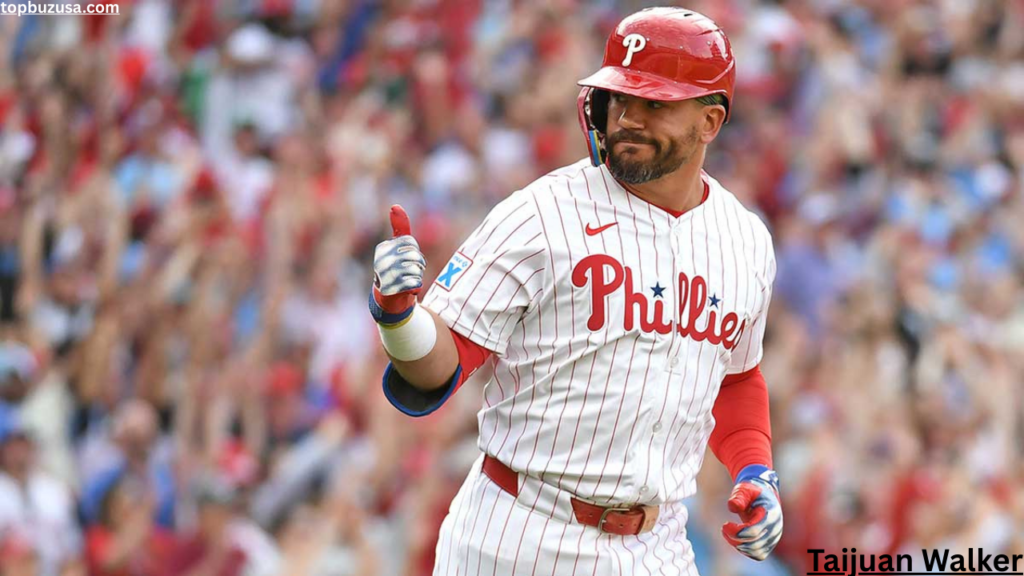
Walker’s career is a case study in resilience. Few pitchers return to form after major surgery, yet he has done so multiple times. His journey serves as a motivational blueprint for athletes facing adversity. Each setback has only added depth to his narrative, making his successes all the more compelling.
Role Model and Leadership
Off the field, Walker is known for his leadership and mentorship. He’s been vocal about mental health, injury recovery, and the pressures of pro sports — topics often left unspoken in locker rooms. His authenticity has earned him respect among peers and coaches.
Media Presence and Fan Engagement
While not a flashy personality, Walker maintains an active presence on social media, often engaging with fans and supporting charitable initiatives. His grounded nature and transparency make him relatable to a broad audience, enhancing his public image as a player fans can root for.
Conclusion
Taijuan Walker’s journey through MLB is not just about stats and wins — it’s about character, endurance, and self-belief. From a teenage phenom to a veteran pitcher guiding younger teammates, he has carved out a meaningful, impactful career. As he continues to evolve with the Philadelphia Phillies, one thing is clear: Taijuan Walker’s legacy is still being written — and it’s one of strength, growth, and heart.
(FAQs)
What teams has Taijuan Walker played for in MLB?
Seattle Mariners, Arizona Diamondbacks, Toronto Blue Jays, New York Mets, and Philadelphia Phillies.
What injury did Taijuan Walker suffer, and how did it impact his career?
He underwent Tommy John surgery in 2018, missing significant playing time, but successfully returned to form.
What is Taijuan Walker’s pitching style?
A mix of fastball, splitter, cutter, and off-speed pitches, with a strategic approach focusing on control and movement.
How has Taijuan Walker performed with the Philadelphia Phillies?
He has been a solid, consistent starter, contributing significantly to the team’s pitching rotation.
Is Taijuan Walker considered an All-Star pitcher?
Yes, he was selected as an All-Star in 2021 during his time with the New York Mets.
You May Also Read: https://topbuzusa.com/host-gimkit/
